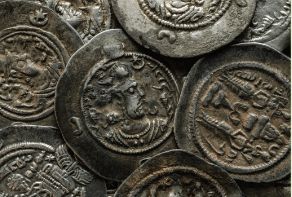Coins and Paper Money
Money is anything that is commonly accepted by a group of people for the exchange of goods, services or resources. Every country has its own system of coins and paper money. However, in the beginning, people bartered. Bartering is the exchange of goods or services for other goods or services; for example, a bag of rice for a bag of beans. However, what if you couldn't agree what something was worth in exchange, or you didn't want what the other person had? To solve that problem, humans developed what is called commodity money. A commodity is a basic item used by almost everyone. In the past, items such as salt, tea, tobacco, cattle and seeds were commodities, and therefore were once used as money. However, using commodities as money had other problems. Carrying bags of salt and other commodities was hard, and commodities were difficult to store, or were perishable . Metal objects were introduced as money around 5000 B.C. By 700 B.C., the Lydians of ancient Turkey became the first in the western world to make coins. Countries were soon minting their own series of coins with specific values. Metal, such as gold and silver, was used because it was readily available, easy to work with, and could be recycled. Since coins were given a certain value, it became easier to compare the cost of items people wanted. The money itself was a commodity, as it was made of precious metals . With the introduction of paper currency and non-precious coinage, commodity money evolved into representative money. This meant that what money itself was made of no longer had to be very valuable. Representative money was backed by a government or bank's promise to exchange it for a certain amount of silver or gold. For example, the old British Pound bill or Pound Sterling was once guaranteed to be redeemable for a pound of sterling silver. Representative money has now been replaced by fiat money. Fiat is the Latin word for "let it be done." Money is now given value by a government “fiat” or decree. In other words, enforceable legal tender laws were made. By law, the refusal of "legal tender" money in favour of some other form of payment is deemed illegal in most countries in order to maintain the value of their own currency. (Reading text adapted from thoughtco)

